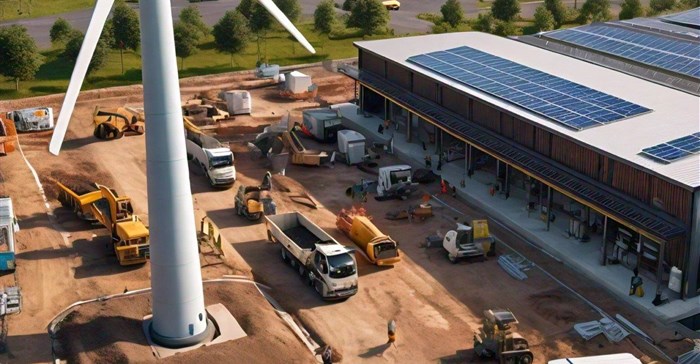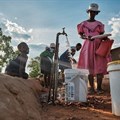The findings of the 9th National Greenhouse Gas Inventory (NHGI) paints a clear picture: for South Africa’s energy and construction sectors, energy efficiency in buildings, a surge in renewable energy, and addressing transport emissions are no longer simply green initiatives, but essential business considerations.

South Africa’s energy and construction industry under heavy scrutiny in Draft Sectoral Emissions Target Report. Source: Meta AI
The Draft Sectoral Emissions Targets (SETs) Report, gazetted on 26 April for public comment, foreshadows South Africa’s upcoming Climate Change Bill – which will further reinforce the National Climate Change Response Policy – reveals a modest decline in greenhouse gas emissions since 2000.
However, the analysis, compiled by the Department of Forestry, Fisheries and the Environment (DFFE), also highlights the energy sector’s outsized contribution to the country’s carbon footprint.
This data presents both challenges and opportunities as South Africa navigates economic growth alongside its climate commitments.
The NHGI confirms that energy remains the dominant source of emissions (78%), followed by agriculture, industrial processes and product use (IPPU), and waste.
Notably, emissions dipped during the COVID-19 pandemic and appear to be “decoupling” from economic growth – a positive sign for the country’s long-term sustainability goals.
Construction industry in focus
The draft report identifies potential challenges for the construction sector. Rising demand for materials like cement and mined products could lead to increased emissions.
Companies that embrace low-carbon materials and energy-efficient practices will likely gain a competitive edge.
Similarly, the transport sector faces hurdles – population growth typically translates to more vehicles on the road. However, a strategic shift towards electric vehicles could mitigate this impact.
South Africa’s forthcoming Climate Change Bill proposes the implementation of SETs. These targets will mandate emissions reductions across various sectors, potentially impacting the energy and construction industries through stricter regulations.
Proactive alignment with these SETs could position companies favourably in the evolving regulatory landscape
Government models predict that aggressive emissions reduction strategies, aligned with a global 1.5°C warming target, would attract the highest level of economic investment.
This suggests potential financial incentives for clean energy adoption and sustainable construction practices.
The energy sector problem
The report the points to energy sector’s dominant role. It’s responsible for 86% of the country’s total emissions in 2022 (including the Land Use, Land-Use Change and Forestry sector, or FOLU).
These emissions come from a combination of factors, including the burning of fuels (CO2, CH4, and N2O), and fugitive emissions like methane leaks (CO2 and CH4).
The key to reducing energy sector emissions lies in a three-pronged approach: using less fuel overall, switching to cleaner fuel sources, and better managing fugitive emissions.
SA’s heavy reliance on coal is also predictably highlighted as a critical area for emissions reduction. The government is prioritising the decommissioning of coal-fired power plants alongside the development of new, cleaner sources of electricity generation.
South Africa’s climate goals and economic well-being are intricately linked. The energy and construction sectors stand at the forefront of this transition, facing both challenges and significant opportunities.












